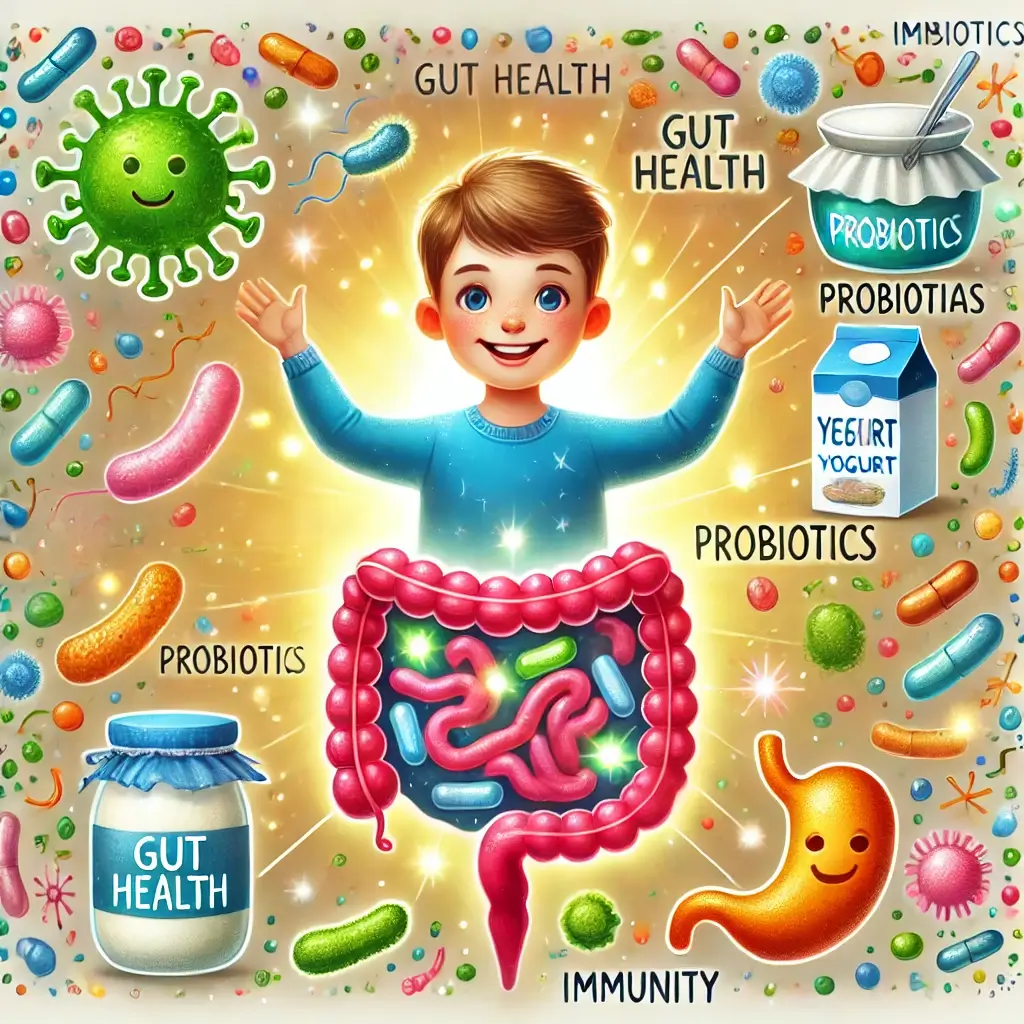Understanding the Complex World of Gut Microbiome in Children
The human gut is home to trillions of microorganisms, collectively known as the gut microbiome and childhood development. These microbes influence digestion, nutrient absorption, immune responses, and even mental health. During childhood, when growth and development are most rapid, the gut microbiome undergoes significant changes, making it a pivotal time to establish a healthy microbial balance. For children, maintaining gut health is not just about avoiding gastrointestinal discomfort—it’s a cornerstone of long-term well-being.
The Role of Probiotics in Pediatric Health
Probiotics, live microorganisms that confer health benefits when consumed in adequate amounts, have emerged as an effective strategy for supporting gut health in children. Whether managing common digestive issues, enhancing immunity, or potentially preventing allergies, probiotics play a diverse role in pediatric health. However, the array of probiotic options for children can be daunting for parents aiming to make the best choice for their children.
Scientific Evidence Supporting Probiotic Benefits
Research on probiotics highlights their potential to address various pediatric health concerns:
Managing Digestive Health with Probiotics
Probiotics are particularly beneficial for managing childhood digestive issues such as diarrhea, constipation, and colic. A 2016 meta-analysis published in BMC Pediatrics reviewed multiple studies examining the effects of probiotics in preventing antibiotic-associated diarrhea. The findings showed that probiotics reduced both the risk and duration of diarrhea in children undergoing antibiotic treatment.
Probiotics Impact on Infant Colic
Another study published in Alimentary Pharmacology & Therapeutics in 2018 focused on infantile colic, a condition characterized by excessive crying and fussiness in otherwise healthy infants. Researchers found that the strain Lactobacillus reuteri for treating infantile colic significantly reduced crying time and improved overall comfort in infants with colic.
Strengthening Children’s Immune System
The development of a child’s immune system is closely linked to their gut microbiome. Probiotics can modulate the immune system by promoting the growth of beneficial bacteria and reducing inflammation. A 2020 review in Nutrients emphasized the role of specific strains, such as Bifidobacterium and Lactobacillus for immune system enhancement in enhancing immune responses and lowering the risk of common infections in children.
Probiotics Role in Allergy Prevention
Emerging research suggests probiotics may reduce the risk of developing certain allergies. A 2016 study published in Allergy followed infants who were given either a probiotic supplement or a placebo. The group receiving probiotics for early childhood eczema prevention showed a significantly lower incidence of eczema by age two, suggesting a protective role against allergic skin conditions.
Selecting Appropriate Probiotic Supplements
Selecting the best probiotic for your child involves several considerations:
Understanding Probiotic Strain Benefits
Different strains have distinct benefits. For example:
Lactobacillus rhamnosus (LGG): Supports digestive health and reduces antibiotic-associated diarrhea.
Lactobacillus reuteri: Effective for managing colic in infants.
Bifidobacterium lactis: Enhances immune function.
Guidelines for Safe Probiotic Use
Probiotics are available as capsules, chewables, powders, and liquid drops. Choose a format that is age-appropriate and easy for your child to consume. Ensure the probiotic supplements for children safety standards comes from a reputable manufacturer and has been tested for potency and purity.
Integrating Probiotics into Children’s Diet
Probiotic-rich foods such as yogurt, kefir, and fermented vegetables can complement supplements. It’s essential to consult a pediatrician before introducing a probiotic supplementation in pediatric nutrition to ensure compatibility with your child’s specific health needs.
Supporting Long-term Microbiome Health
Probiotics represent a natural and effective way to promote a healthy gut microbiome in children. Scientific evidence supports their use in managing digestive issues, bolstering immunity, and reducing allergy risks. By understanding the benefits of specific strains, parents can make informed decisions that align with their child’s unique needs.
The Role of Diet in Microbiome Health
Pairing probiotics with a balanced diet rich in fiber further enhances gut health. Foods such as fruits, vegetables, and whole grains act as prebiotics, nourishing beneficial bacteria and fostering a healthy microbiome development in children.
Future Implications for Children’s Health
Empowering your child’s gut health not only addresses immediate concerns but also lays the foundation for long-term wellness. With the guidance of a pediatrician, probiotics can be an integral part of this journey, promoting vitality from infancy to adolescence.
References
Guarino, A., et al. (2016). World Gastroenterology Organization guidelines for the management of acute infectious diarrhea in children. Journal of Clinical Gastroenterology, 50(2), 187-212. PubMed
Huang, Y., et al. (2018). Efficacy and safety of probiotics for infantile colic. Alimentary Pharmacology & Therapeutics.
Nermes, M., et al. (2016). Impact of probiotics on atopic dermatitis in infants. Allergy.
Ouwehand, A. C., et al. (2020). Probiotics and immune function in children. Nutrients, 12(3), 684.
